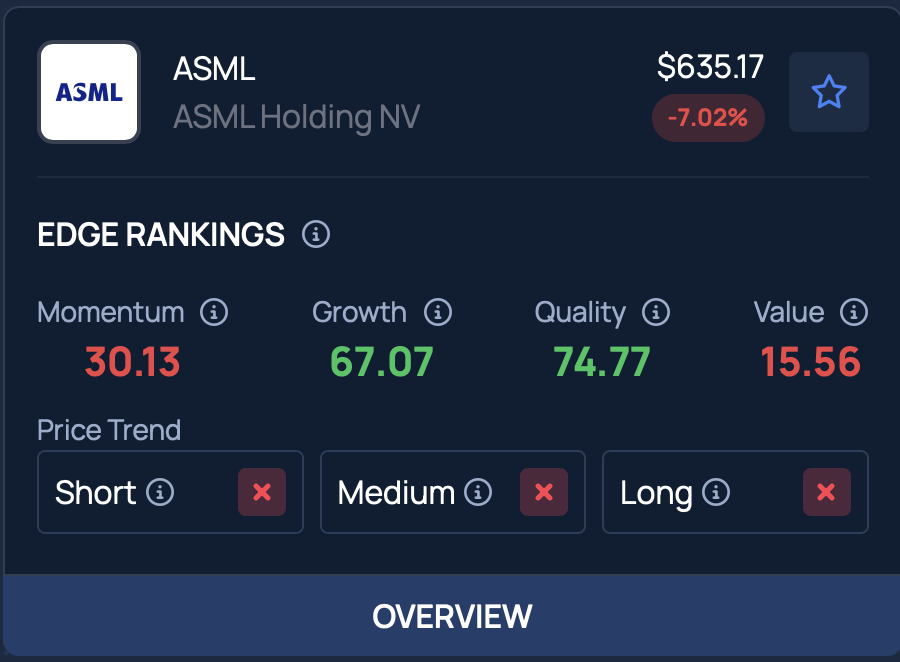On Wednesday, Roger Dassen, CFO of ASML Holdings NV ASML, a lithography equipment supplier to Nvidia Corp. NVDA, acknowledged the contradiction between the U.S. government encouraging domestic chip manufacturing and imposing tariffs on crucial manufacturing tools.
What Happened: During the company’s first-quarter earnings call, analyst Andrew Gardiner from Citi pointed out the inconsistency in the U.S. strategy.
Gardiner highlighted the irony that, while the government is encouraging companies like Taiwan Semiconductor Manufacturing Co., Ltd TSM to set up semiconductor manufacturing facilities in the U.S., it is simultaneously imposing tariffs on essential tools required for this process.
He noted that this policy creates a roadblock for companies like ASML, which supplies critical semiconductor manufacturing equipment such as lithography machines.
In response, Dassen said that this contradiction has not gone unnoticed by the industry, customers, and the Donald Trump administration. “I think it is this complexity that is being recognized.”
“U.S. administration has also said, we’re reviewing the entire ecosystem to figure out how to deal with this,” he stated, adding, “I think it is this complexity that is being recognized. And that’s why I think they’ve said they need a bit more time to understand how to do this and how they can achieve the objective with more onshoring of chip manufacturing in the United States.”
“I think that’s the background of the of the delay that we now see and of the anticipated and announced review of this ecosystem.”
Why It’s Important: During the earnings call, analyst Timm Schulze-Melander asked ASML about the pricing structure of its order backlog, specifically how much is set up as “ex works” (where customers handle shipping and customs) versus how much ASML is responsible for, including duties and delivery.
“In general, we are the importers into the country. But of course, that is actually a bit irrelevant because, at the end of the day, it depends on the contractual agreements that we have with the customers — how you pass on tariff increases there.”
He went on to add that the company believes these costs should be fairly shared across the supply chain, not borne by ASML alone.
Earlier, while speaking with reporters, Dassen also said that ASML has no intention of shifting more of its production to the U.S. to reduce tariff risks, reported Bloomberg.
“Most of the final assembly of what we do happens here in the Netherlands,” he noted.
Dassen also stated that ASML plans to pass a substantial portion of any tariffs onto its customers, arguing that the financial impact should be distributed fairly, especially to those importing the machines into the U.S., who he believes should carry the bulk of the cost.
ASML, the Dutch tech firm whose major clients include TSMC and Intel Corp. INTC, posted first-quarter revenue of €7.742 billion ($8.764 billion), surpassing analyst expectations of €7.760 billion by 12.94%, according to Benzinga Pro.
Price Action: ASML shares declined by 7.06% on Wednesday and have fallen more than 30% over the past year.
Based on Benzinga’s Edge Stock Rankings, ASML scores a solid 67.07% in growth, though it lags in momentum and value metrics. Curious how Nvidia, Intel, and others stack up? Check out Benzinga Edge for deeper insights.

Photo courtesy: Skorzewiak / Shutterstock.com
Read More:
Disclaimer: This content was partially produced with the help of AI tools and was reviewed and published by Benzinga editors.
© 2025 Benzinga.com. Benzinga does not provide investment advice. All rights reserved.



